Authorities on the democratic island of Taiwan say they are battling an influx of disinformation from sources backed by the Chinese Communist Party, ahead of local elections later this month, and even the 2020 presidential election, RFA reports:
A national security source said last week that China has mobilized some 300,000 cyber operatives to target the island’s internet users ahead of the November 24 local elections…. Chinese operatives are spreading disinformation through social media, including Weibo, Facebook and YouTube, as well as targeting its mainstream print and broadcast media, reports said. …Veteran Taiwan journalist Antonio Chiang recently said he believes that the Chinese government is trying to subvert Taiwan’s democracy in any way it can.
“The economic cooperation between Taiwan and mainland China is used by the Chinese government to undermine our democratic system,” Chiang told reporters. “The [Communist Party’s] United Front uses various means, particularly now social engineering tools such as social media.”
 Russia has a century-old playbook for “disinformation,” historians and former intelligence officers say, recycling tactics and narratives, and giving clues to detect their next information-warfare attack on our elections, NBC News reports:
Russia has a century-old playbook for “disinformation,” historians and former intelligence officers say, recycling tactics and narratives, and giving clues to detect their next information-warfare attack on our elections, NBC News reports:
Governments across the ages have used “disinformation,” deliberately spreading false stories to deceive, often as part of military feints and maneuvers.
But the Soviets under Joseph Stalin elevated “dezinformatsiya” to its own government agency, aggressively spreading lies against their political opponents and misleading citizens with bogus propaganda on a mass scale. The practice in Russia dates at least back to the 1880’s, when it was deployed by the Tsarist secret police, the KGB’s predecessor.
“The main difference is the technology available to them,” said Todd Leventhal, a retired senior counter-disinformation officer at the State Department. “The methodology is the same.”
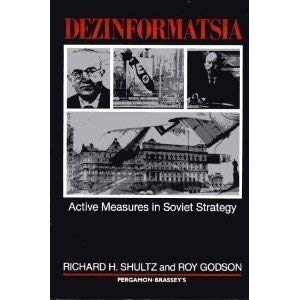 But the Kremlin now employs its own playbook of subversion, analysts suggest.
But the Kremlin now employs its own playbook of subversion, analysts suggest.
“In Russia they do have their own manual that essentially prescribes what to do,” said Clint Watts, a research fellow at the Foreign Policy Research Institute. A successful disinformation campaign, then and now, requires three elements, he said:
- The first is a state-sponsored news outlet to provide a baseline of communications, such as RT (Russia Today) or Sputnik.
- The second are alternative media sources willing to run stories that fall short of traditional fact-checking standards.
- The third are covert personas and agents of influence who will help advance stories into the media, either as trolls, front organizations and cutouts, or compromised or willing “fellow travelers.”
“That essentially is a spectrum,” said Watts. “It’s from overt, what they’re very clearly saying that they support, to covert, that which they plausibly deny to have any involvement with.”
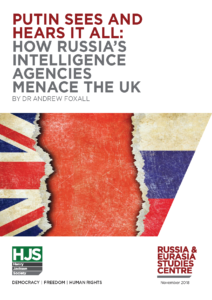 A new report from the Henry Jackson Society, a London-based think tank makes explosive claims about the scale of Russian espionage in the UK. The report – endorsed by the former Director-General of MI6 – is based upon confidential interviews with high-level dissident, defector, and intelligence sources. It sets out both banal and brazen examples of Vladimir Putin’s menacing actions as well as chilling anecdotes of open interference in UK affairs, including up to now unpublished assessments of the scale of Russian espionage in the British capital:
A new report from the Henry Jackson Society, a London-based think tank makes explosive claims about the scale of Russian espionage in the UK. The report – endorsed by the former Director-General of MI6 – is based upon confidential interviews with high-level dissident, defector, and intelligence sources. It sets out both banal and brazen examples of Vladimir Putin’s menacing actions as well as chilling anecdotes of open interference in UK affairs, including up to now unpublished assessments of the scale of Russian espionage in the British capital:
- Russia’s intelligence and security services are as much as 52 times the size of their British equivalents.
- There are up to five times the number of Russian case officers in the UK as there were in 2010. These 200 ‘case officers’ are handling up to 500 agents.
- Out of an estimated population of 150,000 Russian ex-pats living in London, up to half are said to be FSB, GRU, or SVR informants – potentially, some 75,000 assets.
- As many as half of Russian Embassy diplomats are actively engaged in intelligence work, with as many – if not more – said to be working in Russia’s Trade Delegation.
- The UK’s “Warnings Index” – relied upon by Border Control to flag persons of interest, including spies – has proved fatally ineffective at preventing Russian officers from freely entering the country in order to execute hostile operations.
The report – Putin Sees and Hears it all: How Russia’s Intelligence Agencies Menace The UK, by Dr Andrew Foxall – calls upon the Government to redouble its efforts in combatting the threat posed by Russia and suggests that the Government should assess whether to revoke the Parliamentary access of media outlets found to be playing host to Russian spies.
“Disinformation is just lies,” said Kara Swisher, editor of Recode, a tech-news website. “It’s putting out false information to confuse, really, and distract and to make you question real information.”
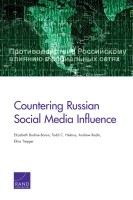 The Kremlin is drawing on standard Communist “active measures” to exploit and exacerbate political and other rifts within democracies.
The Kremlin is drawing on standard Communist “active measures” to exploit and exacerbate political and other rifts within democracies.
“The Soviets were notorious… for featuring any kind of tension between races in the United States to suggest that this is a highly discriminatory society,” said Kathleen Hall Jamieson, a University of Pennsylvania communications professor.
“Don’t look to the United States as this ‘shining city sitting on a hill,’” she said, describing the Soviet attitude, “but actually as this bunch of hypocrites who are pretending they’re a shining city sitting on a hill but actually what they have is a facade.”
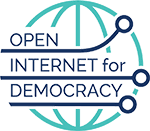 In an effort to combat growing digital authoritarianism, the Open Internet for Democracy Initiative has outlined basic principles for an open internet and warning signs for an undemocratic internet, in a recent report, Democratic Principles for an Open Internet. The initiative aims to identify and promote internet norms and principles essential to democratic governance, said speakers Dan O’Maley, Deputy Editor & Digital Policy Specialist with the NED’s Center for International Media Assistance (CIMA), Anna Kompaneck, Director of Global Programs for the Center for International Private Enterprise (CIPE), and Chris Doten, Chief Innovation Officer for the National Democratic Institute (NDI), and the Center for International Media Assistance (CIMA).
In an effort to combat growing digital authoritarianism, the Open Internet for Democracy Initiative has outlined basic principles for an open internet and warning signs for an undemocratic internet, in a recent report, Democratic Principles for an Open Internet. The initiative aims to identify and promote internet norms and principles essential to democratic governance, said speakers Dan O’Maley, Deputy Editor & Digital Policy Specialist with the NED’s Center for International Media Assistance (CIMA), Anna Kompaneck, Director of Global Programs for the Center for International Private Enterprise (CIPE), and Chris Doten, Chief Innovation Officer for the National Democratic Institute (NDI), and the Center for International Media Assistance (CIMA).
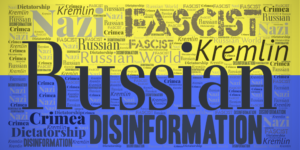 The Russians’ other objective, experts say, is to weaken America in a zero-sum game of geopolitics and force the country to accept Russia on its own terms, NBC adds.
The Russians’ other objective, experts say, is to weaken America in a zero-sum game of geopolitics and force the country to accept Russia on its own terms, NBC adds.
“Russia wants to reach an equilibrium,” said William Wohlforth a professor of government at Dartmouth College. “They want to have a dialogue about cyberspace, have us to lay off them, and reach a deal where we accept a moral equivalence between our information space getting into theirs and ours into theirs.”
“Most Americans would not want to make that deal that equates authoritarian regimes with democracy,” he said. RTWT
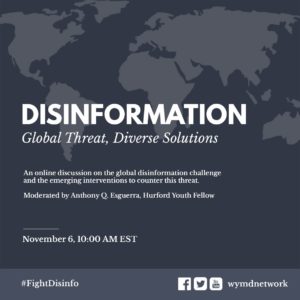 Hurford Youth Fellow Anthony Esguerra is moderating an online discussion, “Disinformation: Global Threat, Diverse Solutions.” Please tune in and use the hashtag #FightDisinfo to tweet questions. You can watch the discussion live on YouTube or feel free to check it out later using the same link.
Hurford Youth Fellow Anthony Esguerra is moderating an online discussion, “Disinformation: Global Threat, Diverse Solutions.” Please tune in and use the hashtag #FightDisinfo to tweet questions. You can watch the discussion live on YouTube or feel free to check it out later using the same link.
Panelists:
- Claudia Flores Saviaga (US/Mexico) is a Research Scientist at the Human-Computer Interaction Laboratory at West Virginia University. Claudia’s research focuses on studying misinformation at scale on social media. She is recently investigating how misinformation in the midterm elections is targeting Latinos specifically on Reddit and Twitter.
- Vitalii Moroz works as a Head of New Media at Internews Ukraine, one of the leading media NGO in Ukraine. Vitalii is responsible for a strategy planning and implementation of new technology and media projects.
- Ana Paula Valacco (Argentina) is the Coordinator of Institutional Development at Chequeado. She is a political scientist and journalist who has previously worked as a Growth Marketer at Google for the South American online market, and at other NGOs as a facilitator both for entrepreneurs and school students on civic education.
- Chihhao Yu (Taiwan) is the Design and Technology Lead at Watchout, a congressional news media and democracy lab in Taiwan. Contributing to the collective task of building a Taiwanese Nation, he works at Watchout to critique and renew journalistic organization, processes, and to build a network of tools and systems that informs and empowers Taiwanese political deliberation and participation.







